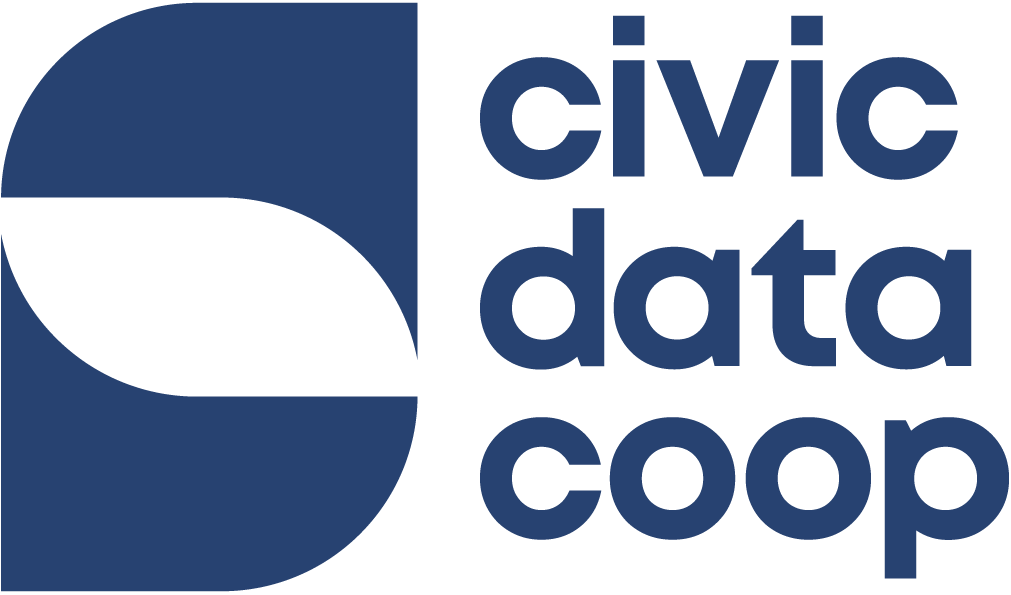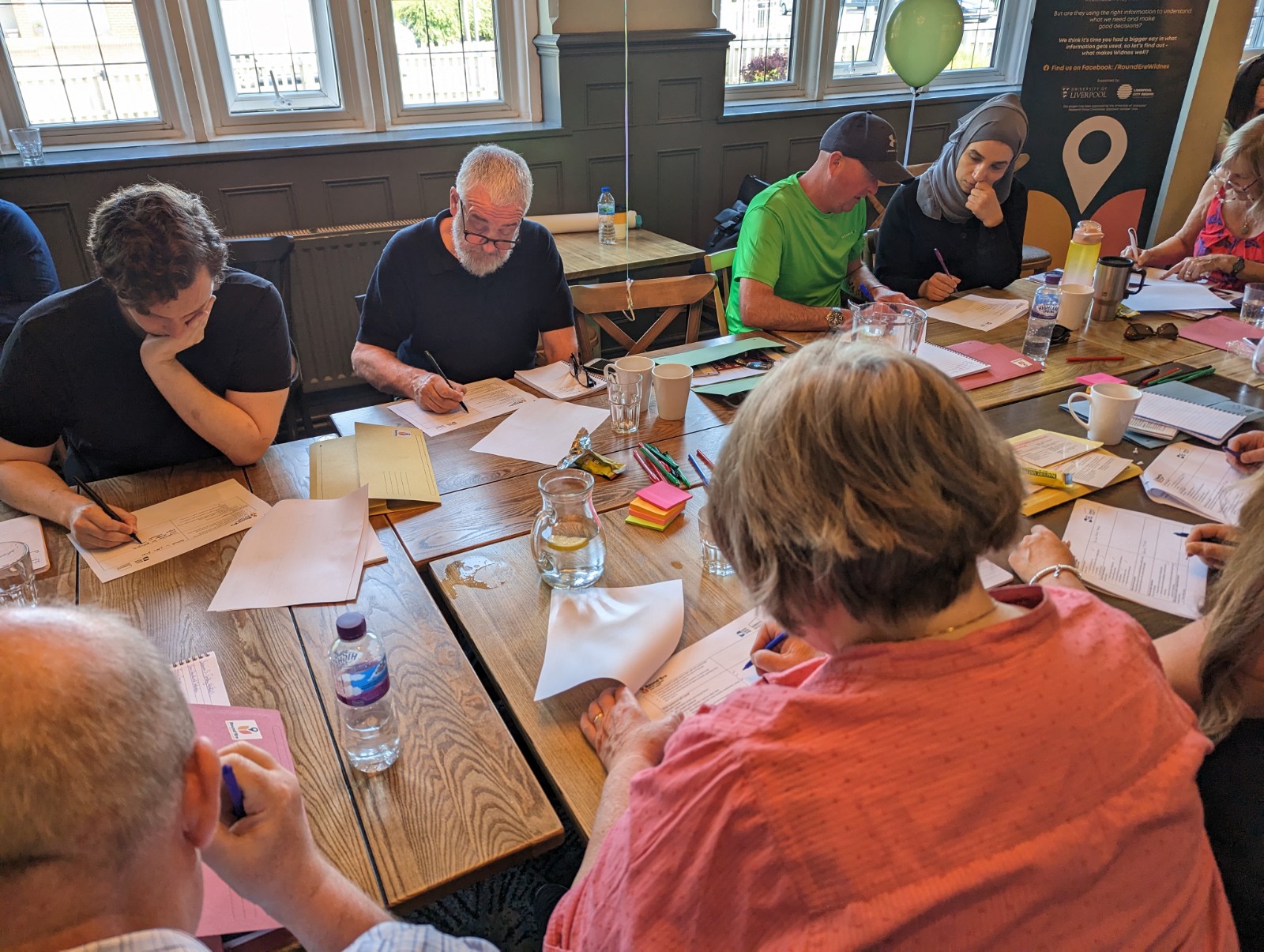Originally published in UKSG eNews 12/01/2024
Data collection is part of everyday life. From social media posts to smart sensors, we individually and at the household level produce data constantly. However, we don’t often see where that data goes or how it impacts us when it’s used.
We know that data can save lives through improved diagnostics and health research, but it can also cause harm when biased data results in biased data technology. Open data has been popularised to address transparency and promote shared value in data systems. Early open data adopters, like the Sunlight Foundation, promoted the potential for open data in democratic accountability.
Here at the Liverpool City Region (LCR) Civic Data Cooperative (CDC) we aim to make data about the region work for the people who live here and ultimately improve the health and wealth of the area. With that aim in mind, we encourage and support the opening up of data. But, there is a big difference between sharing open data and creating an open data system that works for communities. Specifically, how can we make an open data system relevant, meaningful, and useable for communities? With those questions in mind, we developed a series of community-led data projects for the LCR in collaboration with our partner Capacity.
Community-led data projects help us find different ways of working. If community could access data, it does not mean they can access it. It also doesn’t mean they would want to. We want to make open data systems and projects that make data accessible and interesting, bridging the gap between a community and its data.
Making open data relevant
The Round ‘Ere project aims to build a community design and governed wellbeing data hub in Widnes, UK. Based on the Measuring Wellness project for First Nations data governance and the Heseltine Institute’s Clubmoor City Conversation project, we worked with stakeholders and residents in Widnes over a 12-month period to talk about data, wellbeing, and data tools.
We chose wellbeing as the core topic to engage with community to make the project more relevant. There is significant variation in data literacy across residents and community settings. Engaging people on the vague concept of data can often lead to more confusion than clarity. However, we knew community members would have an opinion on what it means to feel well and how that extends to living in their community. We can have a more relevant conversation about data by asking first ‘what does it mean to feel well?’ and then ‘how does that match up with existing data collection and measurement systems?’
Making open data meaningful
Round ‘Ere used participatory research and design to train residents as community researchers. We wanted to work with community on the project instead of on them. We supported our community researchers to define the project parameters and co-design the methodology with us. This opened space for residents to have a say in what matters to them.
Over twelve months we:
Trained 14 community researchers who live and work in Widnes on research methods, conceptions of wellbeing, and understanding data.
Supported the community researchers to co-design a research project on wellbeing in Widnes. They interviewed over 200 friends, families, and residents on what being well meant to Widnes.
Analysed their interviews to develop a shared concept and definition of wellbeing for Widnes.
Hosted workshops to match up what data is held on Widnes to the co-designed definition of wellbeing.
If you’d like to hear more about the results of the community researcher interviews, you can find the results on our website soon: https://civicdatacooperative.com/round-ere.
Making open data useable
Now that we’ve scoped what kind of data we need, we will focus on making our wellbeing data hub useable. This includes both scoping the technical build of the hub through continued co-design activities, but also designing project case studies with our community researchers.
To that aim, we run a programme called ‘What’s Your Problem?’ Launched in 2022, ‘What’s your problem?’ is a four-part programme offering an opportunity to access up to £60k seed funding for ideas that can make real change. The ’What’s Your Problem?’ programme is specifically designed to open up conversations between health, care and community product and service design communities, creating the space to find solutions that truly work. This programme recognises that there are a number of knotty problems within the health and social care system across the city region and provides a space for a variety of service providers to come together and share their experiences to get to the crux of the problem, and then design a solution.
Throughout the past 2 iterations of this programme it has become clear that access to accurate data is a fundamental problem across all of the areas we have explored; children in care, childhood asthma and the mental health of our student and male populations. Key intelligence on the demographics of our communities, existing services, environmental factors, transport links and quality of life indicators are hard to find and even harder to link together to get an accurate picture of how these challenges are unfolding at the individual level and to design solutions that will create meaningful impact.
The third iteration of What’s Your Problem aims to tackle this problem head on. Working with our civic organisations, charities, and local entrepreneurs and in combination with our Round ’Ere community we want to design a space to bring these data sets together to truly understand the opportunities to make meaningful impact in the Liverpool City Region.
Open data for communities
In sum, the LCR Civic Data Cooperative is working with residents, civic organisations, charities, and local businesses to create community-led data projects. We believe open data and data linkage has the potential to improve decision-making and expand problem-solving opportunities in Merseyside. But data alone is not enough. It needs people and problems to contextualise and frame its potential usefulness and relevancy. It needs to be made meaningful.
Learn more about our work on www.civicdatacooperative.com and follow us on Twitter/X @civicdatacoop or LinkedIn.




